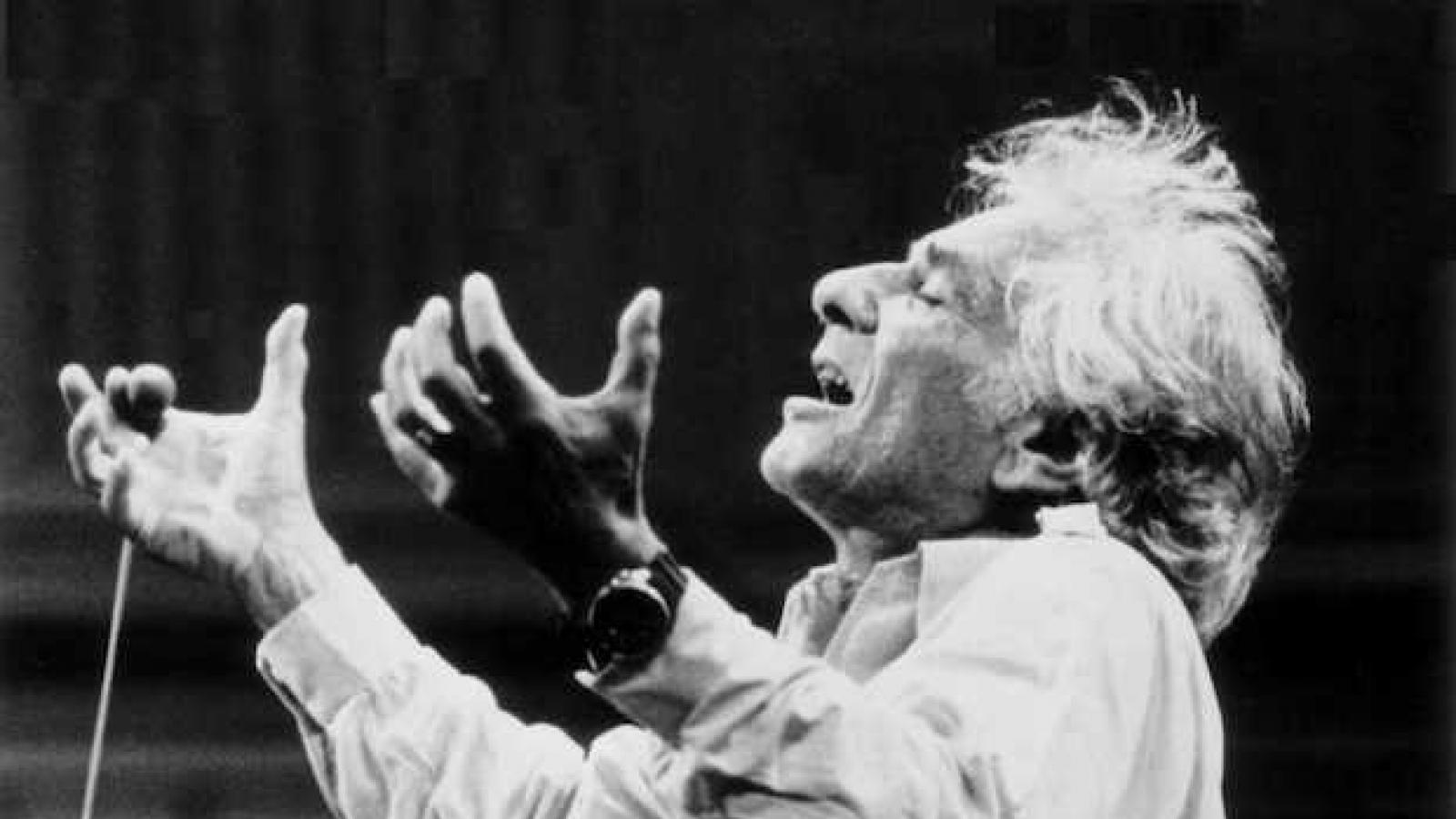Art Talk with Ted Libbey on Leonard Bernstein

Born in 1918 in Lawrence, Massachusetts, Leonard Bernstein was, in many ways, the most important American classical figure of his generation. If you’re familiar with his work, you probably know him as the man behind the score to the musical West Side Story. But Bernstein was a cultural juggernaut unto himself, famous for his own daring compositions and his electric presence directing orchestras around the world. In fact, when he was tapped to be the principal conductor of the New York Philharmonic in 1959, he became the first American-born musician to conduct a major American orchestra.
When Bernstein wasn’t conducting, he found time to compose for the stage (On the Town, Fancy Free, Candide) and screen (On the Waterfront). He was many things and hard to pin down. Conductor. Composer. Humanitarian. Author. Lecturer. Teacher. He was always teaching someone something. Whether teaching kids what melody is through his Young People’s Concerts with the NY Phil or investigating the intersection of poetry and music in his series of Norton Lectures at Harvard, he graciously and enthusiastically shared his musical knowledge wherever he could find an audience. In the process, Bernstein managed to make classical music cool and accessible for kids and adults. (He was also an original member of the National Council on the Arts, which advises the chairman of the National Endowment for the Arts on agency policy and programs, from 1965 to 1968.)
In honor of Bernstein’s 100th birthday tomorrow (August 25), we turn to Ted Libbey, a classical music scholar who knew the American icon well. Since there’s so much ground to cover, we decided to zero in on two subjects—Bernstein’s unabashed love for and mastery of Gustav Mahler’s Symphony No. 5 and his ambitious composition Mass, which was commissioned by Jacqueline Kennedy to open the Kennedy Center in September 1971. [Fun fact: Libbey landed a part in the street chorus of Mass as a student at Yale. Later, he and 189 others (including his brother), traveled to Vienna to perform in the show's European premiere in 1973. Remarkably, he went from fan to collaborator and the two remained friends until Bernstein’s death in 1990].
To learn about Bernstein’s stage and screen work, check out our podcast with Rob Kapilow, host of the public radio show “What Makes It Great?”




